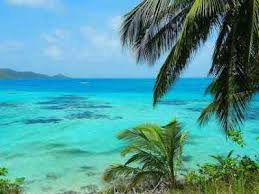
Breaking News
6.5x55 Swedish vs. 6.5 Creedmoor: The New 6.5mm Hotness
Best 7mm PRC Ammo: Hunting and Long-Distance Target Shooting
 Christmas Truce of 1914, World War I - For Sharing, For Peace
Christmas Truce of 1914, World War I - For Sharing, For Peace
Top Tech News
 EngineAI T800: Born to Disrupt! #EngineAI #robotics #newtechnology #newproduct
EngineAI T800: Born to Disrupt! #EngineAI #robotics #newtechnology #newproduct
 This Silicon Anode Breakthrough Could Mark A Turning Point For EV Batteries [Update]
This Silicon Anode Breakthrough Could Mark A Turning Point For EV Batteries [Update]
 Travel gadget promises to dry and iron your clothes – totally hands-free
Travel gadget promises to dry and iron your clothes – totally hands-free
 Perfect Aircrete, Kitchen Ingredients.
Perfect Aircrete, Kitchen Ingredients.
 Futuristic pixel-raising display lets you feel what's onscreen
Futuristic pixel-raising display lets you feel what's onscreen
 Cutting-Edge Facility Generates Pure Water and Hydrogen Fuel from Seawater for Mere Pennies
Cutting-Edge Facility Generates Pure Water and Hydrogen Fuel from Seawater for Mere Pennies
 This tiny dev board is packed with features for ambitious makers
This tiny dev board is packed with features for ambitious makers
 Scientists Discover Gel to Regrow Tooth Enamel
Scientists Discover Gel to Regrow Tooth Enamel
 Vitamin C and Dandelion Root Killing Cancer Cells -- as Former CDC Director Calls for COVID-19...
Vitamin C and Dandelion Root Killing Cancer Cells -- as Former CDC Director Calls for COVID-19...
 Galactic Brain: US firm plans space-based data centers, power grid to challenge China
Galactic Brain: US firm plans space-based data centers, power grid to challenge China
Seasteading in Paradise

For nearly a decade, the Seasteading Institute has been working to create autonomous floating communities on the ocean, where settlers can make their own rules de novo, unbound by the principalities and powers based on land. Founded by Google software engineer Patri Friedman—grandson of the libertarian economist Milton Friedman and son of the anarchist legal theorist and economist David Friedman—it has weathered its share of thin years, previously dwindling to a two-staffer, no-office operation. But on January 13 in San Francisco's Infinity Club Lounge, institute chief Randolph Hencken signed a memorandum of understanding with a new partner, one Jean-Christophe Bissou, and put the construction of an actual seastead onto the cusp of reality.
Bissou is no buccaneer or eccentric billionaire. He is minister of housing for French Polynesia, a collection of 118 islands and atolls in the South Pacific, technically an "overseas collectivity" of France. Seasteading will not begin on the government-free open seas after all. If Hencken, Bissou, and their respective colleagues have their way, the first seastead will float next year in a lagoon within French Polynesian waters.
As Hencken prepared to sign the agreement, he declared that this shift from a freewheeling vision of a libertarian society in the open ocean to a more tightly managed experiment in an existing nation's territory was probably inevitable. "We are not turning our backs on who we are," he said just before the ceremony, "but we are recognizing that when we made the choice in 2012 that we weren't going to the open ocean—we didn't have a billion dollars to build a floating city—that we'd have to engage in the politics of nations. It's challenging, but that's the reality of the human world, right?"
French Polynesian President Edouard Fritch was supposed to be there, but he had to stay behind to tend to some minor upheaval in his cabinet. (Bissou informed the audience that he got on the plane in Tahiti as minister of tourism but landed in California as minister of housing.) But none of this was a big deal, Fritch assured the crowd via Skype. Bissou was there representing the government's intention that seasteading will happen in French Polynesia.
The agreement commits the parties to "studies addressing the technical and legal feasibility of the project in French Polynesia" and to preparing a "special governing framework allowing the creation of the Floating Island Project located in an innovative special economic zone." Since the Seasteading Institute is an educational nonprofit, the signing ceremony was also the public debut of a for-profit spinoff called Blue Frontiers, which intends to build, develop, and manage the first Polynesian seastead.
Considering all that can go wrong when trying to craft a bold plan to save the planet from its political, economic, and environmental troubles, the path to the agreement was surprisingly short and untroubled.
The Polynesian Fixer
Marc Collins is kind of a big deal. Around Tahiti and its sister islands, he knows people who know people, and he knows all the people they know.
A former Silicon Valley resident himself, Collins grew up in Mexico and made his bones in French Polynesia as a retail jewelry king and an internet service provider telecom magnate. He also worked in the Polynesian government for 17 years, including a spell as minister of tourism. He claims to have once been the only person on the islands with a paper subscription to Wired magazine. So Collins was hip to the scene that produced the seasteaders—he'd been reading about them since 2008.
He noticed a 2015 article on Wired's website that said the seasteaders were ready to downsize their vision from a deep-sea project to a "floating city" in shallow offshore water. As a result, they'd need to collaborate with a host nation. So Collins contacted Hencken via LinkedIn and began cultivating relationships with him and other seasteaders via Skype and other means.

 The State's Last Stand
The State's Last Stand


